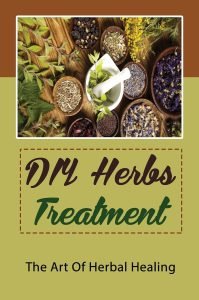What Are The Disadvantages Of Herbal Medicine?
Today, we’re going to explore the world of herbal medicine and uncover some of its potential drawbacks. As more people turn to alternative forms of healing, it’s important to have a balanced understanding of the benefits and limitations. While herbal medicine has been used for centuries to treat various ailments, there are certain disadvantages that we should be aware of. From lack of standardization to potential interactions with other medications, let’s take a closer look at the potential downsides of relying solely on herbal remedies. So, buckle up and join us on this informative journey!
Limited Scientific Evidence
When it comes to herbal medicine, one of the key disadvantages is the limited scientific evidence to support its efficacy and safety. This is mainly due to the lack of standardized research methods in studying herbal remedies. Unlike pharmaceutical drugs, which are subject to rigorous clinical trials, there is a dearth of such trials for herbal medicines. As a result, the effectiveness, safety, and proper dosage of many herbal remedies remain uncertain.
Insufficient Clinical Trials
Another drawback of herbal medicine is the insufficiency of clinical trials conducted on these remedies. While certain herbs have been used for centuries in traditional medicine systems, the lack of clinical trials makes it difficult to establish their true effectiveness and determine any potential risks or side effects. Clinical trials are essential for gathering scientific evidence and providing a reliable basis for recommendations or warnings about the use of herbal remedies.
Limited Studies on Safety and Efficacy
The limited availability of studies on the safety and efficacy of herbal medicine is also a cause for concern. With a lack of sufficient research, it becomes challenging to accurately assess the potential risks and benefits of using herbal remedies. This can lead to uncertainty and confusion among individuals seeking alternative treatments. Without a thorough understanding of the safety and efficacy profile of herbal medicines, patients may unknowingly put themselves at risk.
Potential Side Effects
While herbal medicine is often considered a more natural and gentle approach to healing, it is not without its potential side effects. It’s important to recognize and understand these risks when considering the use of herbal remedies.
Allergic Reactions
Just like with any other substance, herbal medicines can trigger allergic reactions in some individuals. Certain herbs, such as chamomile or echinacea, may cause allergic symptoms like itching, rashes, or even difficulty breathing in susceptible individuals. It is crucial to be aware of any potential allergies you may have to specific herbs before using them as remedies.
Negative Drug Interactions
Herbal medicines can also interact with conventional pharmaceutical drugs, leading to undesirable effects or reduced effectiveness of either treatment. For example, St. John’s wort, a popular herbal remedy for depression, has been shown to interact with various medications, including antidepressants, birth control pills, and anticoagulants. These interactions can alter the intended outcomes of both the herbal remedy and the pharmaceutical drug.
Toxicity in High Doses
While herbs are generally considered safe when used appropriately, some herbs can be toxic if taken in high doses. For instance, high doses of certain herbs like comfrey or kava have been linked to liver damage. It is crucial to carefully follow dosage instructions and consult with a qualified healthcare professional before using any herbal remedy to avoid potential toxicity.
Lack of Regulation
One of the significant disadvantages of herbal medicine is the lack of regulation in the manufacturing and distribution of herbal products. Unlike pharmaceutical drugs, herbal remedies are not subject to the same stringent quality control measures and regulations. This can lead to several problems concerning product quality, potency, and safety.
Quality Control Issues
Due to the limited regulation in the herbal medicine industry, there can be significant quality control issues. The lack of standardized manufacturing processes and quality standards can result in inconsistencies in the potency and purity of herbal products. This not only affects the effectiveness of the remedies but also poses potential safety risks.
Inconsistent Potency and Purity
The lack of regulation can also lead to inconsistencies in the potency and purity of herbal products. This means that different batches or brands of the same herbal remedy may vary significantly in their active compounds, making it challenging to achieve consistent therapeutic effects. Additionally, impurities or contaminants in herbal products can pose a risk to consumers, especially if they are not adequately screened for safety.
Mislabeling and Adulteration
Another concern associated with the lack of regulation is the potential for mislabeling or adulteration of herbal products. Without strict oversight, there is a possibility that some herbal products may be inaccurately labeled or deliberately adulterated with other substances. This poses a significant risk as consumers may unknowingly ingest ingredients that can cause adverse reactions or interact negatively with other medications.

Potential Misuse
The ease of access to herbal remedies and the perception of naturalness may lead to potential misuse or improper use of these treatments. It is important to be aware of the risks associated with self-diagnosis, self-medication, and incorrect dosages.
Self-Diagnosis and Self-Medication
One downside of herbal medicine is the potential for individuals to self-diagnose and self-medicate without proper guidance from healthcare professionals. Without a thorough understanding of their specific condition and the potential interactions between herbs and other medications, self-diagnosis and self-medication can delay or even worsen the underlying health issue.
Incorrect Dosages
The lack of professional guidance in using herbal remedies can also result in incorrect dosages. Determining the appropriate dosage for herbal medicines is often a complex task that requires knowledge and expertise. An improper dosage can either render the herbal remedy ineffective or cause unintended side effects, potentially compromising the individual’s well-being.
Delayed or Inadequate Treatment
Relying solely on herbal remedies without seeking timely medical advice can lead to delayed or inadequate treatment. While certain herbal medicines may provide symptomatic relief, they may not address the underlying cause of the condition. This delay or lack of appropriate treatment may allow the condition to worsen or progress to a more serious stage.
Limited Availability
The availability of certain herbs can also pose a disadvantage when relying on herbal medicine. There are a few factors that contribute to the limited availability of herbs.
Difficulty Sourcing Some Herbs
Certain herbs used in traditional medicine systems may be difficult to source, particularly in regions where they are not native. This can cause challenges in obtaining the necessary ingredients for specific remedies, making it harder for individuals to access the herbal treatments they desire.
Seasonal Availability
Many herbs have seasonal availability, meaning they may only be harvested or accessible during particular times of the year. This limited availability can hinder consistent access to herbal remedies, especially if a person relies solely on these treatments for their healthcare needs.
Dependency on Geographical Location
The geographic location can play a significant role in the availability of certain herbs. Some herbs may only thrive in specific climates or environments, making them more readily available in some regions compared to others. This dependence on geographical location can limit the accessibility of herbal remedies, particularly for those living in areas where these herbs may not naturally grow.

Delayed Results
Compared to conventional drugs, herbal remedies can often take longer to produce noticeable results. This delayed onset of action can be a disadvantage for individuals seeking immediate relief from their symptoms or conditions.
Slower Onset of Action Compared to Conventional Drugs
Herbal remedies typically work in a more gradual and gentle manner compared to pharmaceutical medications. While this can be beneficial for certain conditions, it can also mean that the desired results may take longer to manifest. Individuals seeking quick relief may find the slower onset of action with herbal medicine to be a drawback.
Longer Treatment Duration
Due to the slower onset of action, herbal remedies may require a more extended treatment duration compared to conventional drugs. This prolonged treatment period can be a disadvantage for individuals who desire or require rapid improvement or resolution of their health issues.
Interaction with Conventional Medications
The use of herbal medicine alongside conventional medications can lead to potential interactions between the two. These interactions can affect the effectiveness of both treatments and may lead to undesired outcomes.
Potential Interference with Prescribed Drugs
Certain herbs have been known to interfere with the metabolism or effectiveness of prescribed drugs. For example, herbs like garlic or ginkgo biloba can affect blood clotting and may interact with anticoagulant medications. These interactions can compromise the overall therapeutic outcomes and may lead to suboptimal treatment results.
Reduced Effectiveness of Pharmaceutical Treatments
On the other hand, some herbal remedies may reduce the effectiveness of pharmaceutical treatments. For instance, herbs like St. John’s wort have been shown to accelerate the breakdown of certain medications in the liver, thereby reducing their overall efficacy. It is essential to consider potential interactions and consult with a healthcare professional before combining herbal medicine with conventional medications.

Lack of Professional Guidance
Another disadvantage of herbal medicine is the limited access to professional guidance and expertise. This lack of guidance can result in improper dosing, conflicting advice, and a general misunderstanding of how to effectively use herbal remedies.
Insufficient Dosage and Usage Instructions
Herbal remedies often lack clear and standardized dosage instructions. Without proper dosage guidance, individuals may struggle to determine the appropriate amount to use, leading to inconsistent results or potential adverse effects. The lack of clear usage instructions can also make it challenging to understand how frequently or for how long a herbal remedy should be used.
Conflicting Advice from Herbal Practitioners
Herbal medicine practitioners may offer conflicting advice or recommendations due to differences in training or experience. This can create confusion for individuals seeking reliable guidance on the use of herbal treatments. Without access to consistent and evidence-based information, it can be challenging to make informed decisions regarding herbal medicine use.
Limited Access to Trained Herbalists
Finding qualified and experienced herbalists can be a challenge in some regions. Limited access to trained herbalists reduces the availability of reliable expert guidance on proper herbal medicine use, dosage, potential interactions, and monitoring of treatment progress. This lack of professional support can hinder individuals from maximizing the benefits of herbal medicine while minimizing the associated risks.
Variability in Herbs
The variability of herbs is another concern that arises when relying on herbal medicine. Natural variations in active compounds, different species or plant parts, and the potential for contamination or substitution can affect the consistency and reliability of herbal remedies.
Natural Variations in Active Compounds
Herbal remedies often contain natural variations in the concentration of active compounds. Factors such as plant genetics, growing conditions, and harvesting methods can influence the chemical composition of herbs. This variability makes it challenging to ensure consistent therapeutic effects across different batches or sources of herbal products.
Different Species or Parts of the Plant May Have Varying Effects
Additionally, different species or parts of the same plant can have varying effects and concentrations of active compounds. This means that using a different species or plant part than what is traditionally recommended may result in different therapeutic outcomes. Without standardized guidelines, it becomes difficult to determine the most appropriate and effective herbal remedy for a particular condition.
Contamination or Substitution with Other Substances
The lack of regulation and quality control in the herbal medicine industry increases the risk of contamination or substitution of herbs with other substances. Contaminants such as pesticides, heavy metals, or microorganisms can pose health hazards. Similarly, the substitution of herbs with lower-cost alternatives compromises the integrity and reliability of herbal remedies, potentially leading to unexpected or adverse effects.
Dependency on Traditional Knowledge
A significant disadvantage of herbal medicine is its heavy reliance on traditional knowledge and anecdotal evidence. While traditional knowledge can provide valuable insights and guidance, it does not always align with modern scientific validation. This reliance on traditional knowledge can limit the understanding and acceptance of herbal medicine in mainstream healthcare systems.
Lack of Modern Scientific Validation
Traditional knowledge often lacks the comprehensive scientific validation necessary to establish the safety, efficacy, and mechanism of action of herbal medicines. Modern scientific research methods and rigorous clinical trials are essential to provide thorough evidence and support for the use of herbal remedies. The lack of such validation can result in skepticism, dismissal, or limited acceptance of herbal medicine in conventional healthcare systems.
Reliance on Anecdotal Evidence
Anecdotal evidence, consisting of individual experiences or stories, is a common form of information used in traditional medicine systems. While anecdotal evidence can provide insights into the potential benefits of herbal medicine, it cannot replace well-designed scientific studies. The reliance on anecdotal evidence alone may overlook potential risks, variability in individual responses, or confounding factors that can influence outcomes.
Limited Understanding of Potential Interactions
Traditional knowledge may lack a comprehensive understanding of potential interactions between herbal remedies and conventional medications or among different herbs. Without a clear understanding of these interactions, there is a risk of adverse effects or suboptimal therapeutic outcomes when combining herbal medicine with other treatments. This limited understanding can reduce the overall safety and effectiveness of herbal medicine.
In conclusion, while herbal medicine offers various potential benefits, it is important to consider the disadvantages and limitations associated with its use. The limited scientific evidence, potential side effects, lack of regulation, possibility for misuse, limited availability, delayed results, interaction with conventional medications, lack of professional guidance, variability in herbs, and dependency on traditional knowledge all contribute to the disadvantages of herbal medicine. It is crucial to approach herbal medicine with caution, seek professional guidance, and consider all available options before making decisions regarding one’s healthcare.




